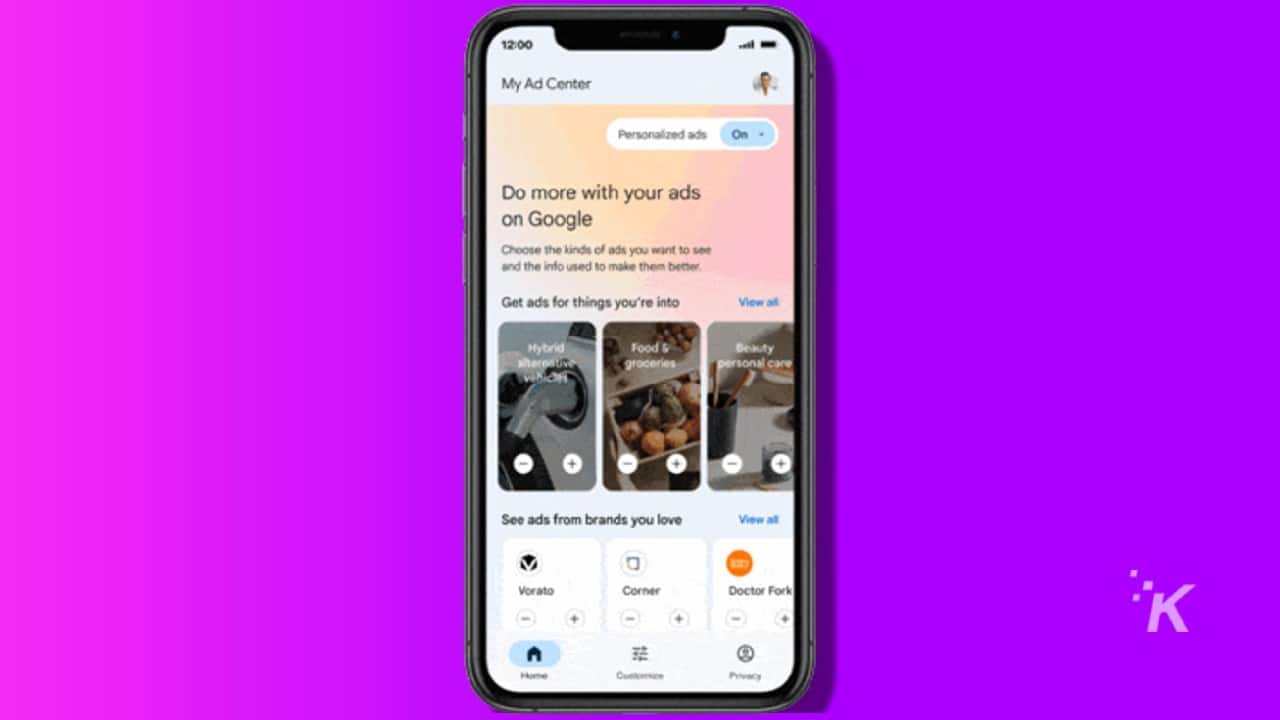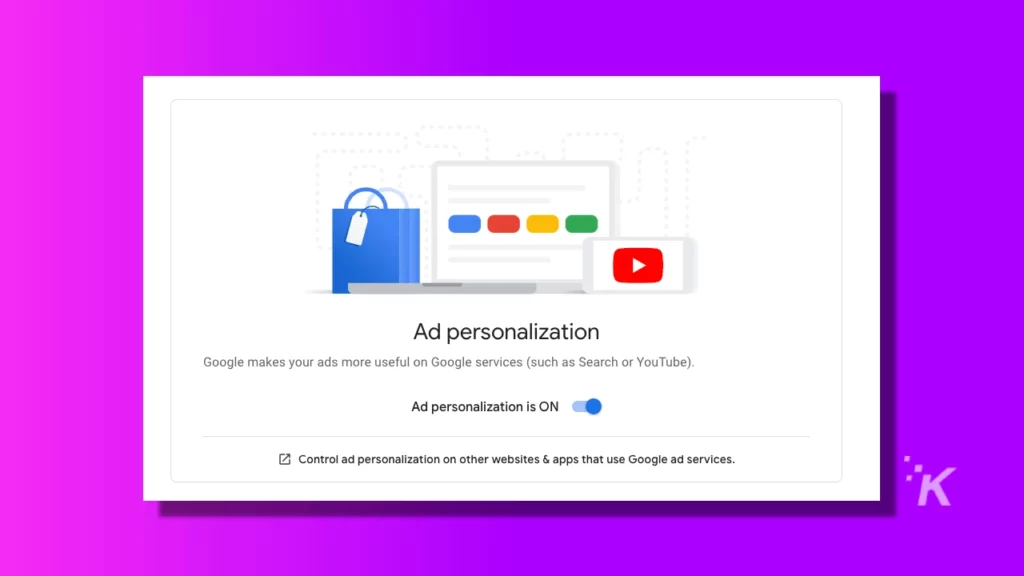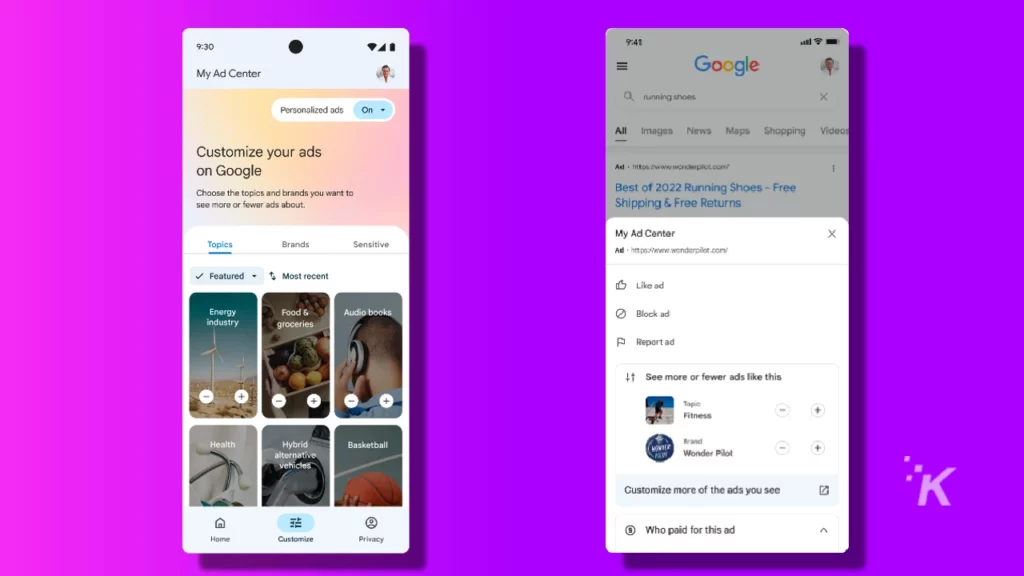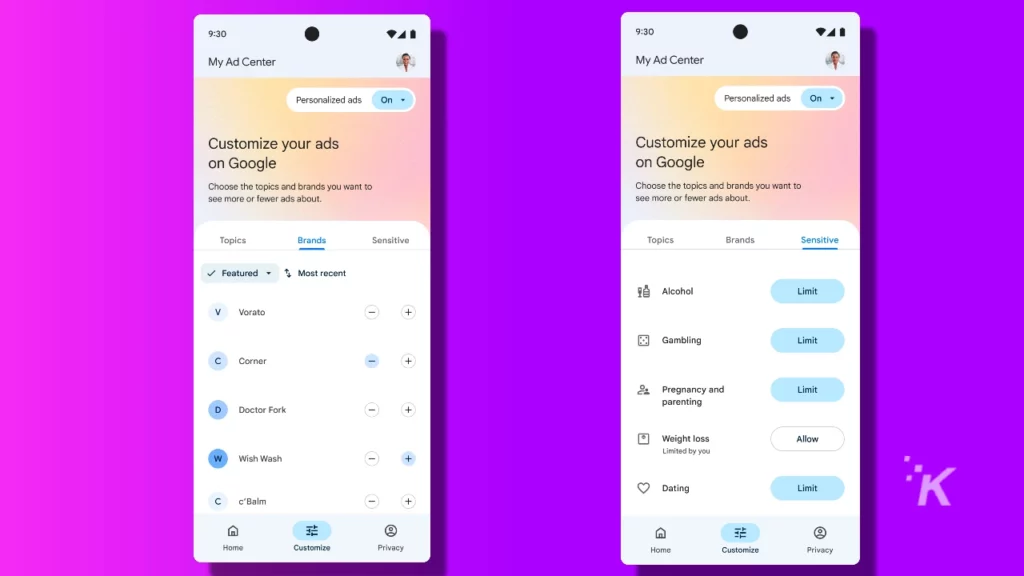Ads
Google’s new user controls let people limit sensitive ad categories
These updates only apply to Gmail and YouTube ads right now.

Just a heads up, if you buy something through our links, we may get a small share of the sale. It’s one of the ways we keep the lights on here. Click here for more.
Personalized ads help marketers appeal to people in their target audiences, but such targeting could also have unintended consequences, especially when consumers are dealing with difficult circumstances.
Google has recently responded to that reality by adding more categories to the list of sensitive topics for its YouTube and Gmail ads.
According to a company spokesperson, these tweaks don’t yet apply to search engine results or Google Shopping ads, but that will happen eventually.
An expansion of an earlier update

In December 2020, Google began giving people more control over ads shown to them. The company let users specify they’d like to see fewer ads about alcohol and gambling when using YouTube.
These latest updates expand upon those by adding parenting, pregnancy, weight loss, and dating to the sensitive topics list.
Karin Hennessy, a group product manager for ad privacy at Google, said, “We’ll continue to listen to user feedback and study which categories to expand this feature to in the future.”
How might this update affect advertisers and Google users?

Statistics indicate most for-profit companies spend somewhere between 9%-12% on advertising, but the percentage can be more than triple that in some cases.
It’s more than likely this Google update won’t cut into marketing plans. After all, if a person finds a company’s industry or ad topics triggering, they’re not part of its target audience anyway.
However, as you almost certainly know from experience, unexpected life changes can cause certain topics to become distressing. Perhaps you recently had a miscarriage.
Going through such a traumatic event requires taking time to grieve, so it would certainly be understandable if you wanted to limit ads about pregnancy and parenting for a while. These new Google updates make that possible.
As you can probably imagine, this is not the first time Google has enacted ad-based limitations.
In 2019, it banned political advertisers from targeting people based on their voting history or political affiliation. Instead, the targeting only extended to the individual’s postal code.
However, in that case, the limitations related to what advertisers must do rather than giving users themselves more control.
Facebook did something similar by forbidding advertisers to target people based on religion or politics.
Part of a larger trend?
Google is not the only major tech company that has recently announced increased customization for the content users see.
In January, Instagram announced a three-tier sensitive content control setting. It lets you choose no restrictions, “limit” or “limit even more.”
However, representatives did not go into further detail, and the setting names are arguably a bit vague. Unlike Google, Instagram does not yet allow people to specify which topics bother them.
Last year, Snapchat allowed users in the United Kingdom to turn off gambling advertisements.
Twitter also rolled out a feature that lets users specify that particular tweets they publish contain sensitive content or spoilers. It’s up to the people who come across those posts to decide if they want to see them.
Getting more control over your online experience

Google is leading the way in letting people narrow down what they don’t want to see. However, it’s important to remember that changing these settings does not impose a blanket ban everywhere online.
These updates only apply to Gmail and YouTube ads right now. However, the new features will help you temporarily avoid ad topics you might prefer to avoid.
Have any thoughts on this? Let us know down below in the comments or carry the discussion over to our Twitter or Facebook.
Editors’ Recommendations:
- Do sketchy ads pop up on your favorite websites? Here’s why
- Google will stop selling ads based on users’ web browser history
- Google is, once again, blocking political ads
- A ton of Chrome extensions have been exposed for injecting ads in Google search results
































